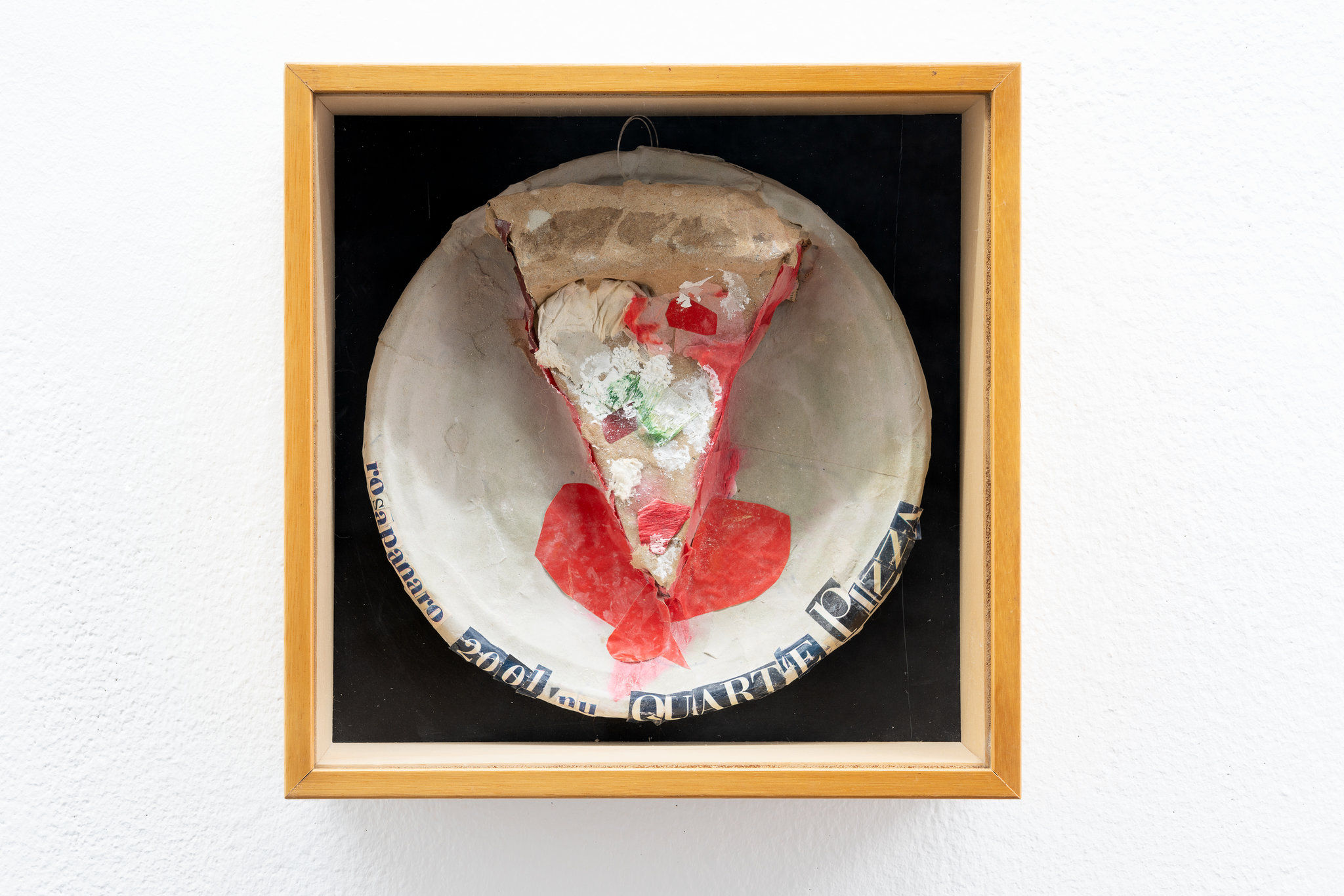
'Quart ́e ́pizza', 2001
Papier-mâché and paint in wooden case
24 × 24 × 7.5 cm
Unique
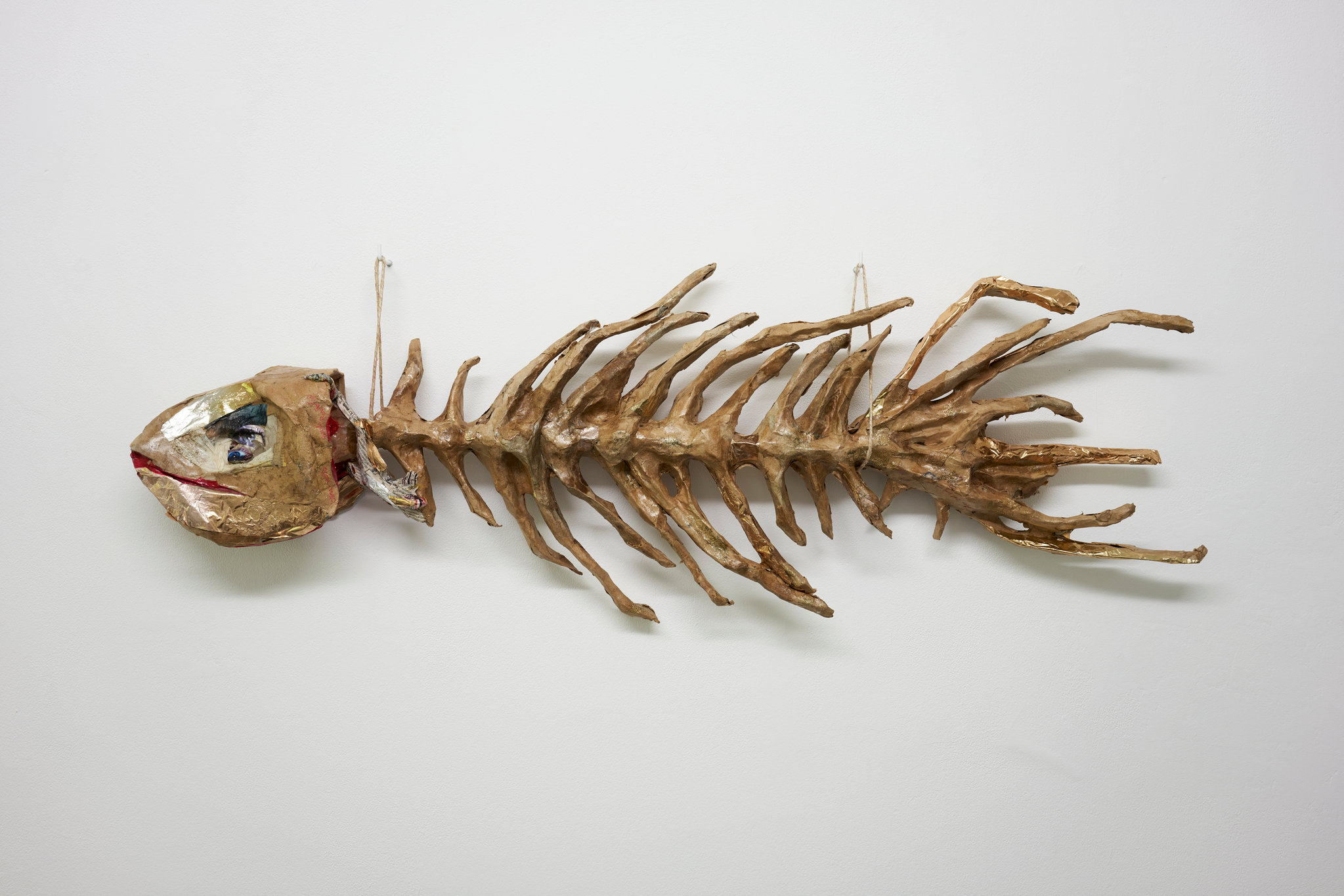
'Lisca', 1980
Iron, papier-mâché, paint, collage, glitter
41 × 111 × 10.8 cm
Unique
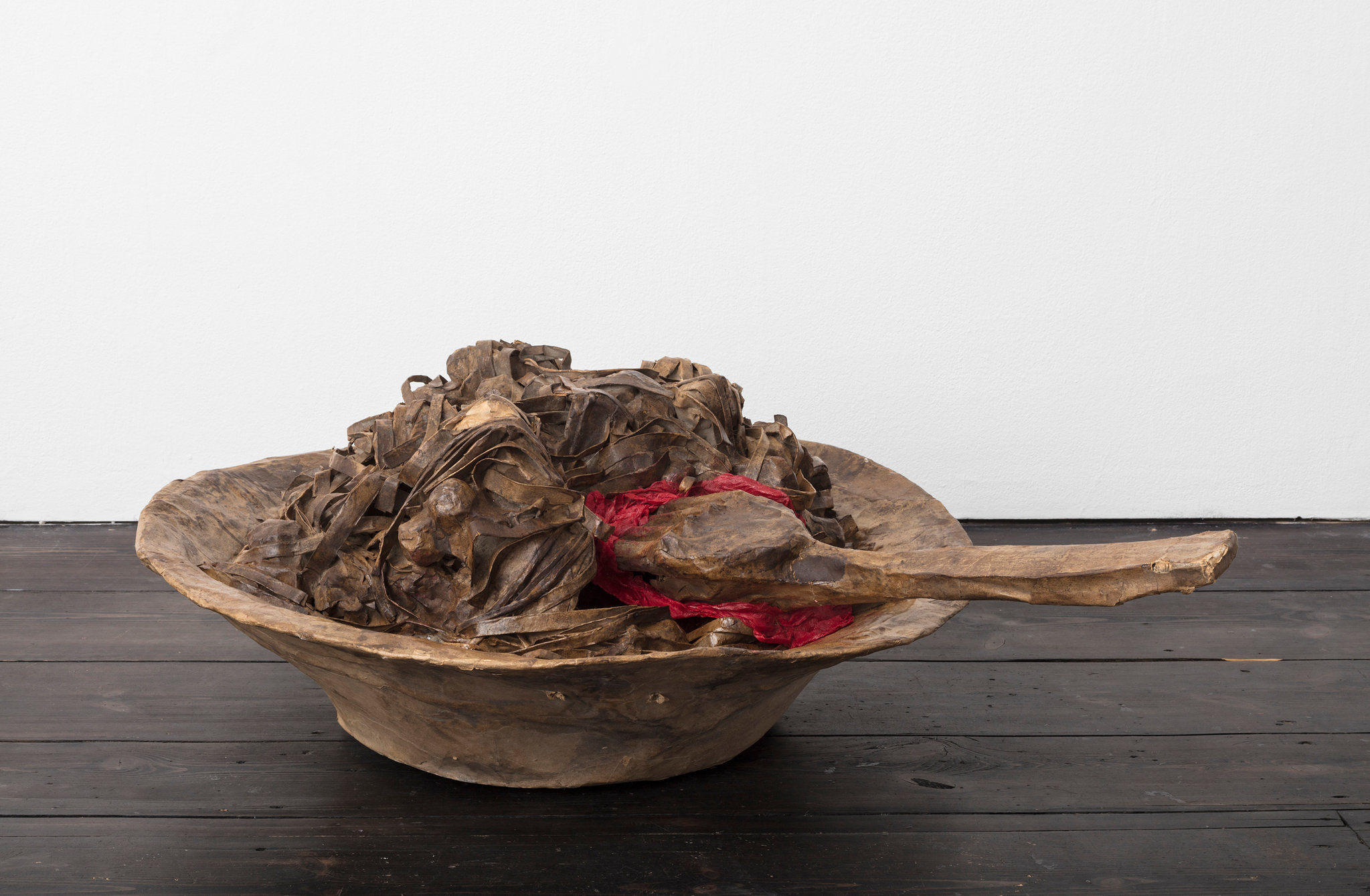
'Cicere e tagliatelle', 1976
Papier-mâché, paint
47 × 107.5 × 80 cm
Unique
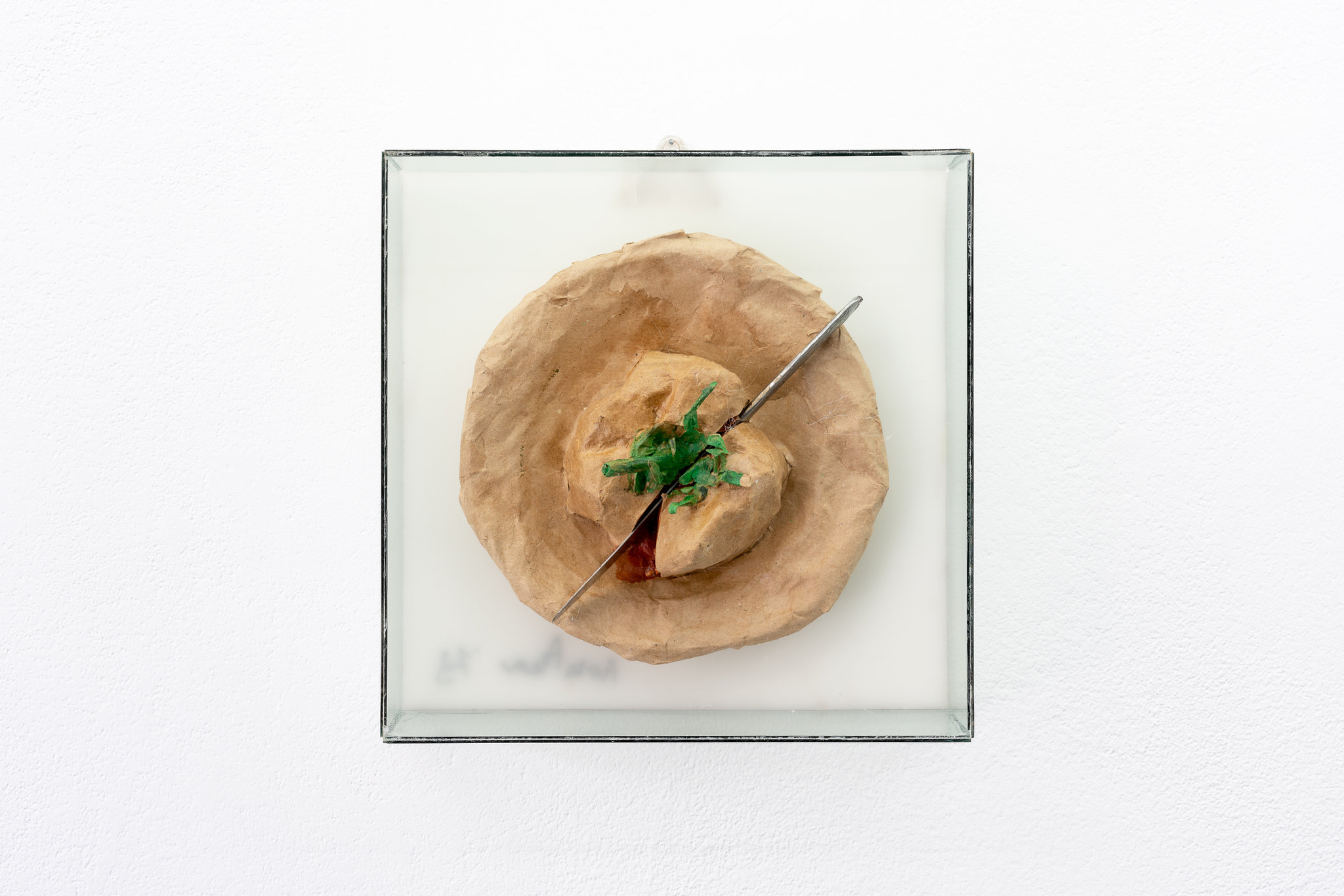
'Pomodoro', 1974
Papier-mâché and stainless steel knife in plexiglass case
29 × 29 × 10 cm
Unique
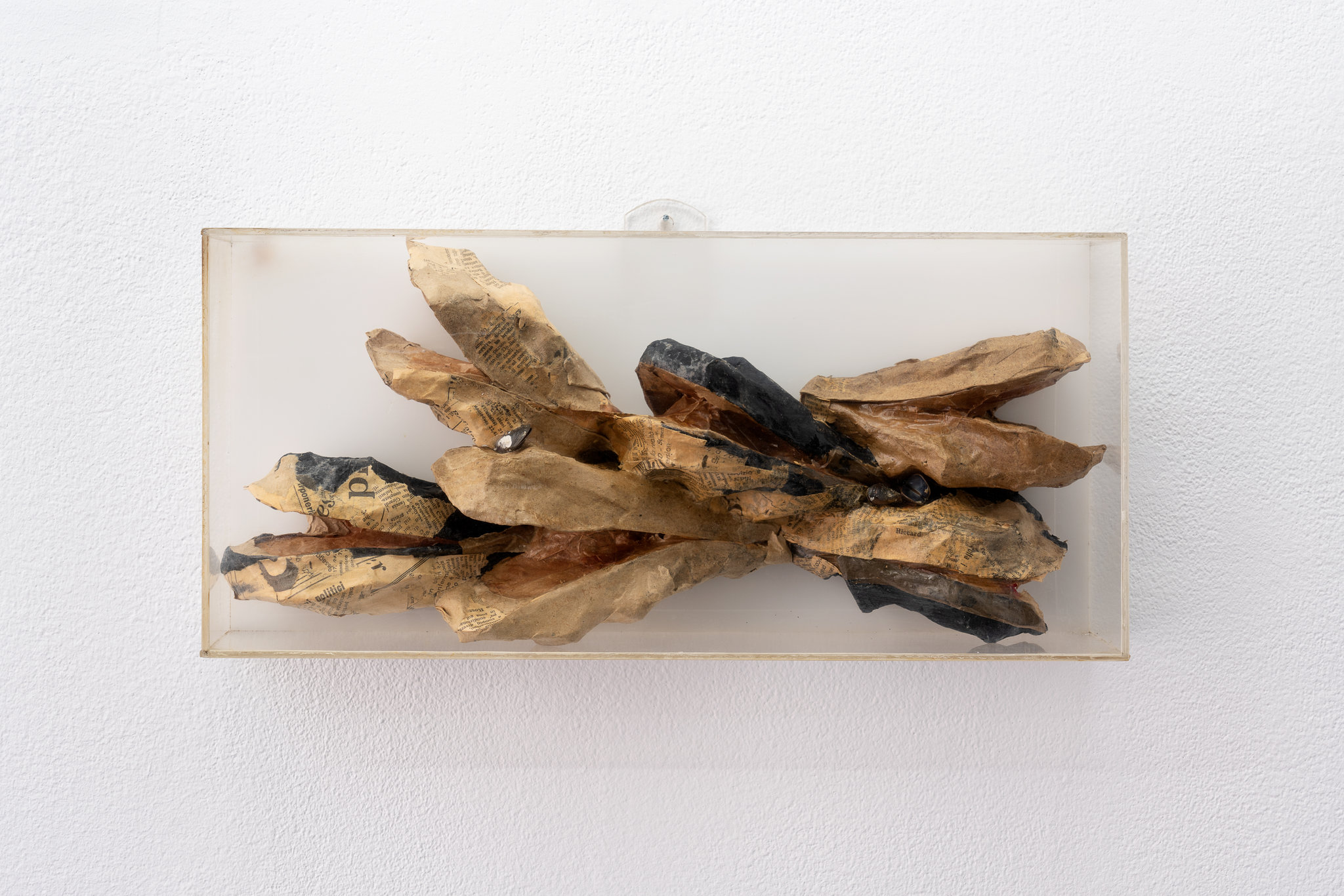
'Cozze salvate e preservate', 1973
Papier-mâché in plexiglass case
18 × 49 × 8 cm
Unique
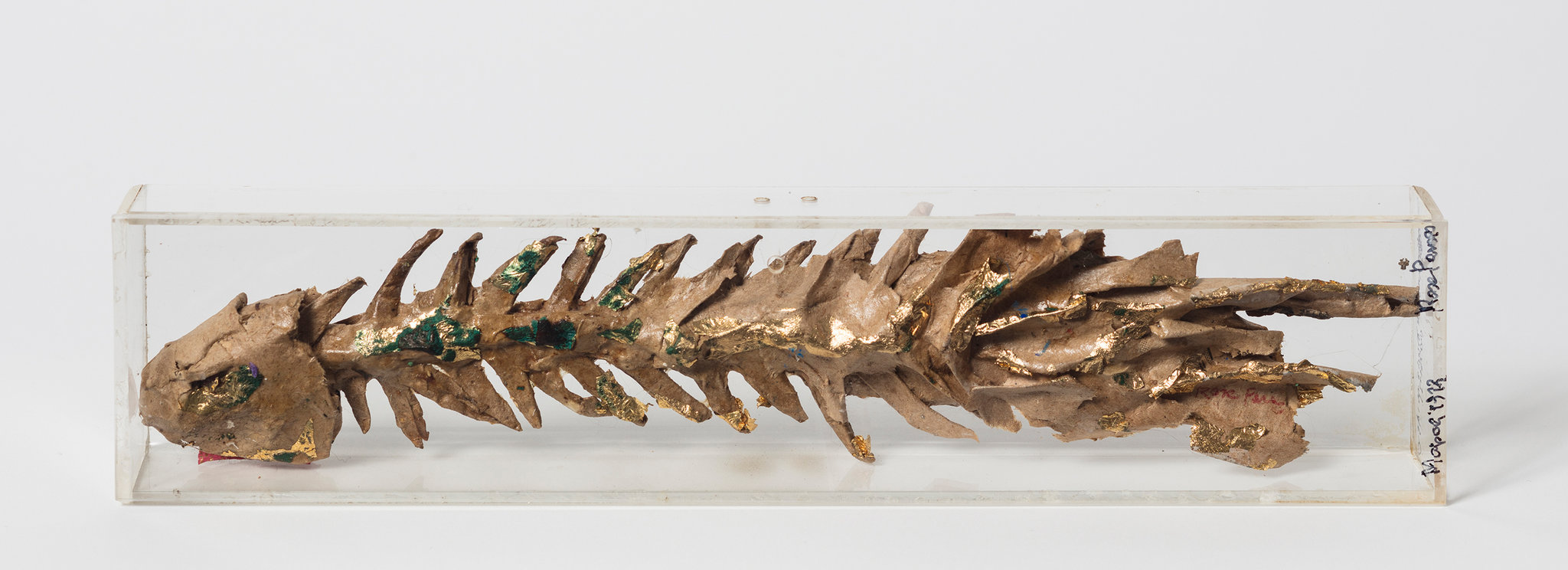
'Lisca', 1973
Papier-mâché, paint
6 × 29 × 3 cm
6.6 × 29.6 × 3.6 cm (framed)
Unique
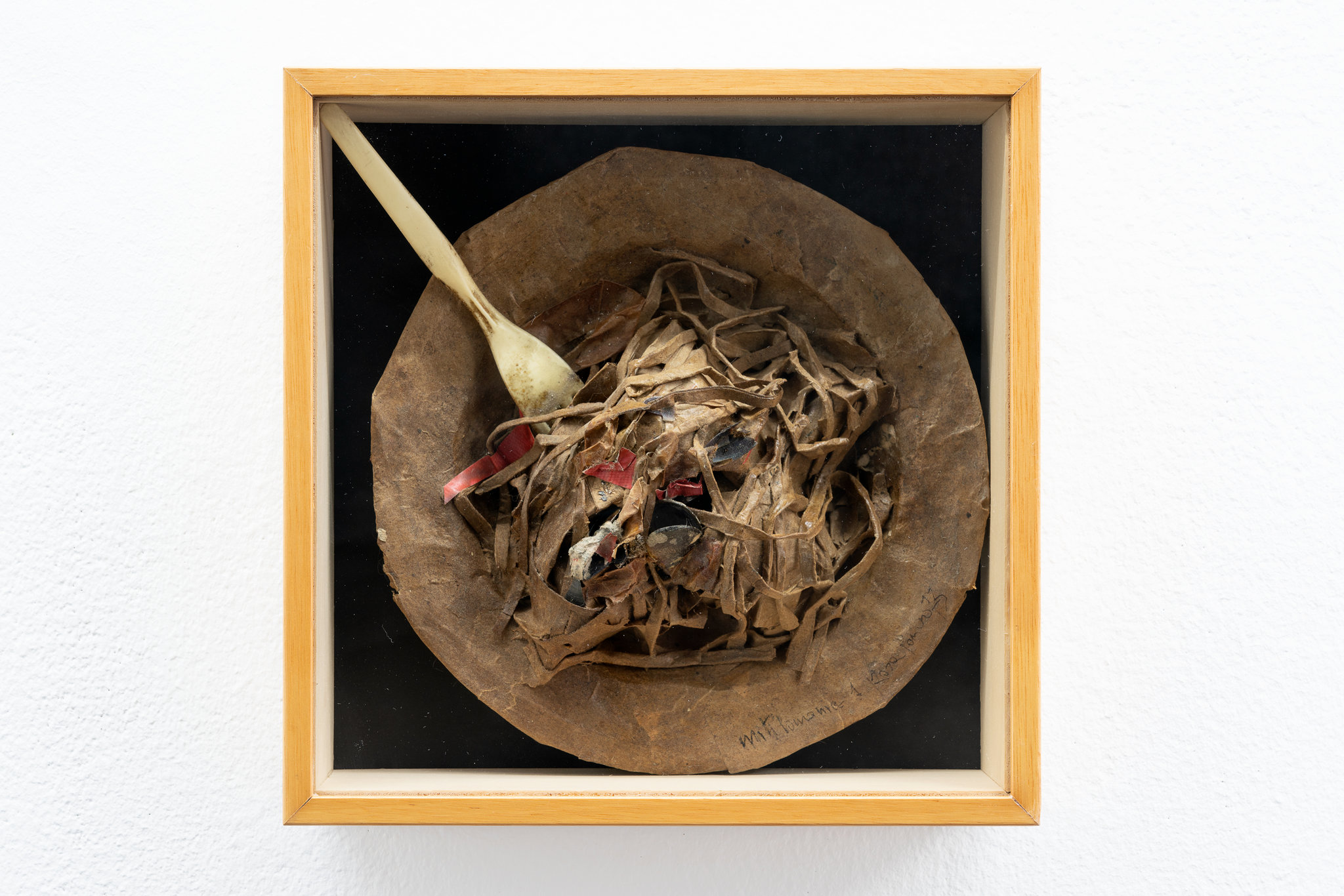
'Mitilomania', 1973
Papier-mâché and plastic fork in wooden case
26 × 26 × 8 cm
Unique
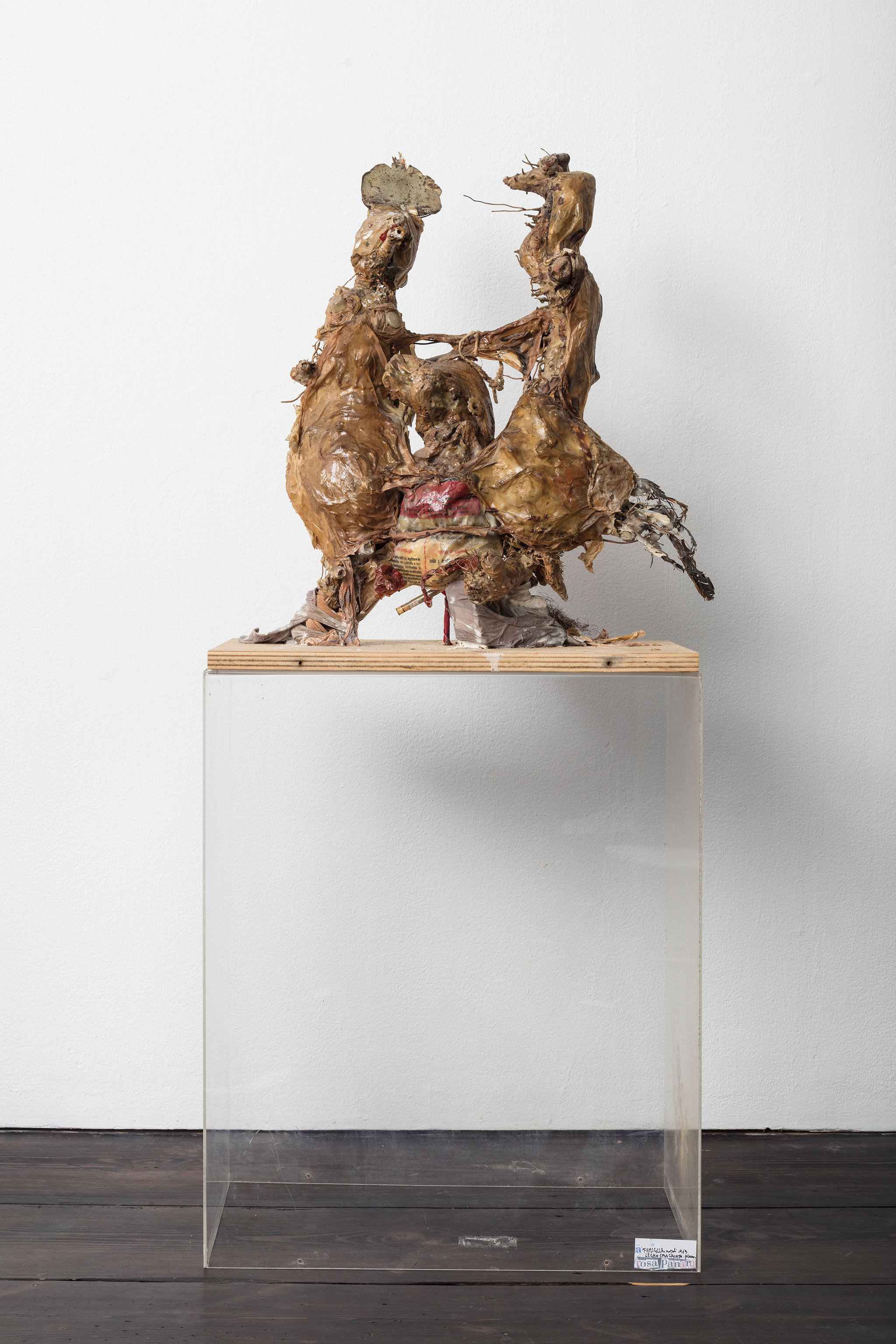
'La famiglia', 1963
Driftwood, iron, glue, papier-mâché, paint, plastic, fabric, string, feathers, hair, syringes
56 × 60.5 × 29.5 cm
Crate
Unique
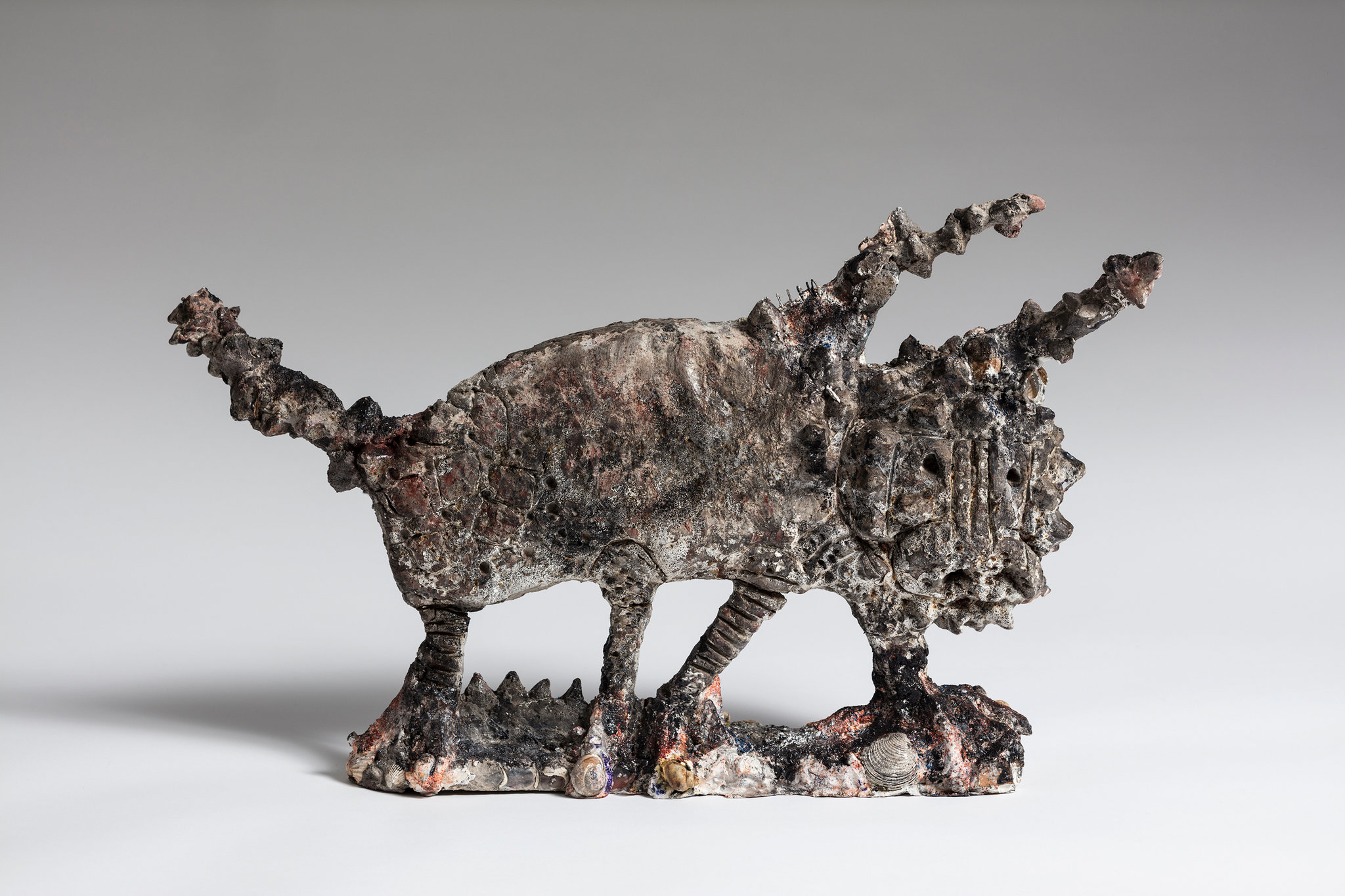
'Gatto bifronte', 1958
Concrete, shells, paint, glitter
36.8 × 63 × 12.5 cm
Unique
Rosa Panaro (1935-2022, Italy) worked with materials such as concrete, papier-mâché, clay, and resins. By the late fifties, she had begun to manipulate the techniques learned from her maestro, the sculptor Antonio Venditti, and deviate from post-war abstractionism to find a more whimsical treatment of material and form. Panaro’s use of papier-mâché in particular anticipates the emergence of artistic experiments dealing with the art object and commodification – as later became significant to Pop Art and Nouveau Réalisme. In 1977 Panaro began a series of collaborative activities with feminist collectives such as Gruppo XX and Gruppo Donne / Immagine / Creatività, which produced numerous itinerant actions including “Vaso di Pandora” and “Lavoro Nero – Lavoro Creativo”. During these years she also contributed to the subversive magazine Effe. The first international exhibition of sculptural work by Panaro was presented at SANDY BROWN in Berlin in 2020.
Panaro’s work is included in the collections of Museo Davia Bargellini, Palazzo Bargellini, Pieve di Cento, Bologna; Museo MADRE, Naples; Museo del Novecento, Castel Sant ́Elmo, Naples; ARCA, Museo d Á rte Religiosa Contemporanea, Naples.